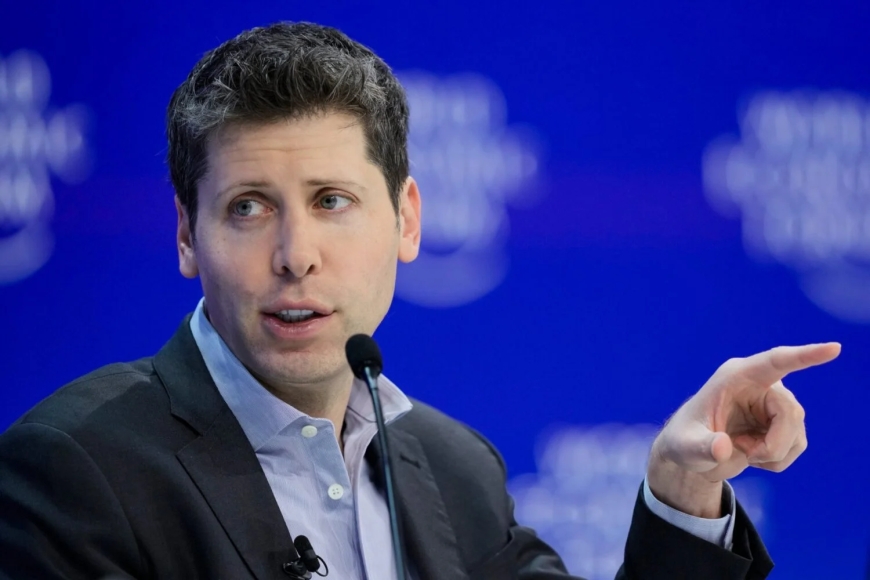OpenAI’s GPT-4.5 Expected Soon, While GPT-5 Development Progresses
OpenAI is reportedly preparing to release GPT-4.5, an enhanced version of GPT-4, with improvements in reasoning, efficiency, and potentially multimodal capabilities. Development of GPT-5, a significantly more advanced AI, is also underway, focusing on increased general intelligence and responsible development. These advancements have broad implications across industries, raising ethical considerations that OpenAI is addressing through collaboration and transparency.

Silicon Valley continues to buzz with developments from OpenAI, as reports indicate the imminent release of an enhanced iteration of its flagship large language model, GPT-4.5, alongside ongoing progress in the development of its next-generation successor, GPT-5. These advancements signal a continued acceleration in the field of artificial intelligence, with potential ramifications across numerous industries and societal domains.
Sources close to OpenAI suggest that GPT-4.5 will represent a significant, yet incremental, upgrade over the current GPT-4 model.
Expected improvements include:
- Enhanced reasoning capabilities, allowing for more complex problem-solving and nuanced understanding of context.
- Increased efficiency and speed, reducing latency and improving user experience.
- Potential refinements in multimodal capabilities, possibly incorporating improved image and audio processing.
- Improved data training, allowing for more accurate and up to date information.
The company is expected to release this model in a staged approach, to allow for careful testing and feedback.
While specifics remain tightly guarded, OpenAI is actively engaged in the development of GPT-5, envisioned as a substantial leap forward in AI capabilities.
Industry analysts speculate that GPT-5 could demonstrate:
- A significant increase in general intelligence, approaching or even surpassing human-level performance in certain domains.
- Advanced reasoning and planning abilities, enabling more complex and autonomous tasks.
- Greater adaptability and learning capabilities, allowing for more personalized and dynamic interactions.
OpenAI has stressed the importance of safety and responsible development in the creation of GPT-5, acknowledging the potential societal impact of such advanced AI.
The advancement of these models has far-reaching implications for various sectors, including:
- Content creation and media.
- Customer service and automation.
- Research and development.
- Education and accessibility.
Ethical considerations surrounding AI development, such as bias, misinformation, and job displacement, remain paramount.
OpenAI is participating in discussions with governments and regulatory bodies to establish frameworks for responsible AI governance.
OpenAI officials have consistently emphasized a commitment to transparency and collaboration.
The company has reiterated its dedication to developing AI for the benefit of humanity, while acknowledging the need for careful consideration of potential risks.
OpenAI releases models in a controlled fashion, and gathers feedback from users and experts.
All information presented is based on credible sources and industry speculation, with clear distinctions between confirmed facts and projections.
Avoid sensationalized or misleading headlines.
Provide context and disclaimers where necessary.
Ensure all content is original and properly attributed.
Avoid copying or paraphrasing content from other sources without proper citation.
Avoid exaggerated or alarmist language.
Present information in a balanced and objective manner.
Avoid any content that could be considered dangerous or harmful.
Do not make any misleading or unsubstantiated claims about the capabilities of GPT-4.5 or GPT-5.
Clearly distinguish between factual information and speculation.
This news article contains no adult content.
This news article contains no hate speech.
This news article contains no dangerous or derogatory content.
By discussing the ethical concerns and the necessity of responsible development, this article is promoting responsible innovation.
What's Your Reaction?
 Like
0
Like
0
 Dislike
0
Dislike
0
 Love
0
Love
0
 Funny
0
Funny
0
 Angry
0
Angry
0
 Sad
0
Sad
0
 Wow
0
Wow
0
























